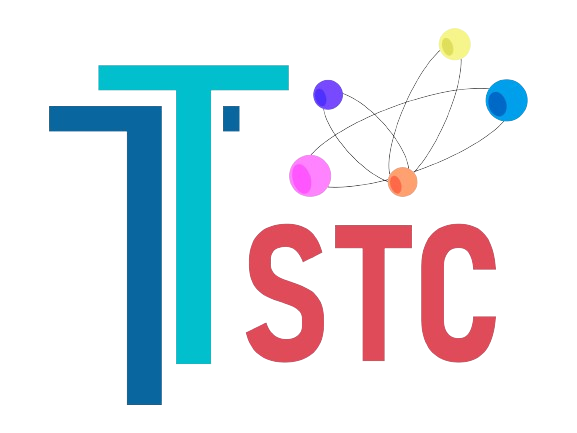Webinar | Micro-System Technology in Tissue and Biomedical Engineering
On April 22, the International Webinar Series on Smart Healthcare Science and Technology brought with the topic “Micro-System Technology in Tissue and Biomedical Engineering.” The webinar series aims to promote communications between academics, industry and clinical experts of Taiwan and Thailand. This webinar is hosted by Asst. Prof. Ching-Hsiang Fan, Dept. of Biomedical Engineering NCKU, and the invited speakers include Prof. Chia-Ching (Josh) Wu, Associate Vice President for R&D and Professor of Dept. of Cell Biology and Anatomy College of Medicine NCKU, Asst. Prof. Chamras Promptmas, Advisor to the Dean, Department of Biomedical Engineering, MU, and Dr. Pornpat Athamanolap, Lecturer of Department of Biomedical Engineering, MU.
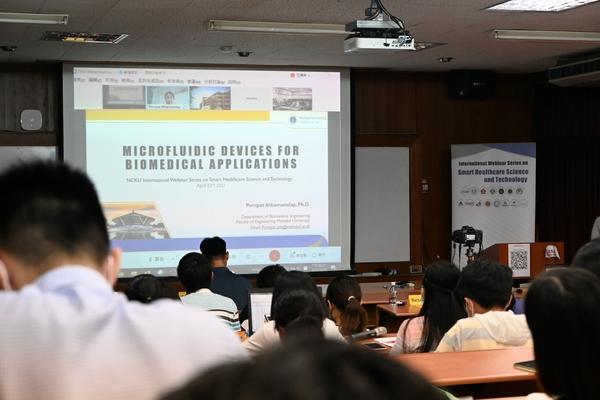
Pic 1:Taiwan and Thailand experts share knowledge on Microfluidics
One of the key elements in cellular microsystems is to integrate cellular factors, genetic code, molecular biology and microelectromechanical systems on a small chip. “The artificial microenvironment is capable of modulating stem cells for organs or tissue regeneration. It not only enhances the generation efficiency, but also saves the cost of numerous lab tests.” Prof. Chia-Ching (Josh) Wu mentioned. Prof. Wu and his team are specialized in regenerative medicine. In his talk, he shared about regenerating nerve injury and hair architecture with cellular microsystems.
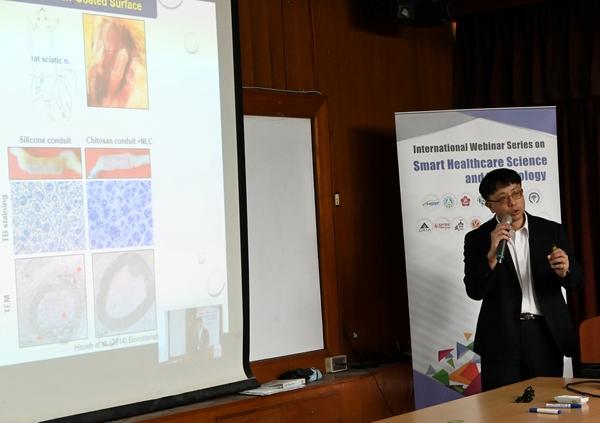
Pic 2:Prof. Chia-Ching (Josh) Wu shared about tissue regeneration
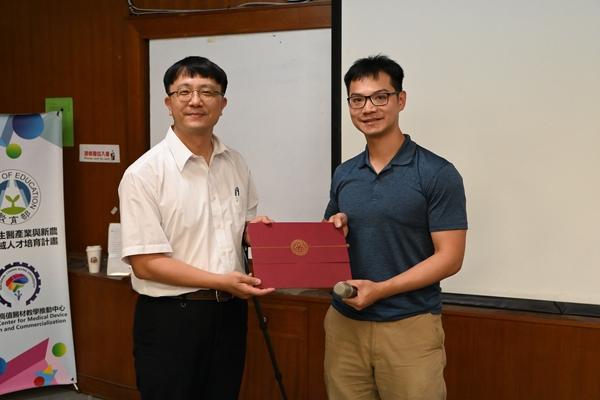
Pic 3:Prof. Chia-Ching (Josh) Wu shared about tissue regeneration
Asst. Prof. Chamras Promptmas develops a microfluidic system for diagnostics of NMOSD (Neuromyelitis Optica Spectrum Disorder), a rare condition of autoimmune and demyelinating disorder affected predominantly on the optic nerve and spinal cord. He and his team found out that clinical and radio imaging features of NMOSD patients cannot be differentiated from MS (Multiple Sclerosis). Myelin Oligodendrocyte glycoprotein (MOG) antibody can be assigned as a new biomarker for NMOSD. “Healthcare makes rapid progress beyond imagination thanks to modern technology advancements. The microfluidic system can merge abundant information and process analysis, providing accurate diagnosis for rare disease." said Asst. Prof. Chamras Promptmas. (※ Learn more about Asst. Prof. Chamras Promptmas research findings in NMOSD.)
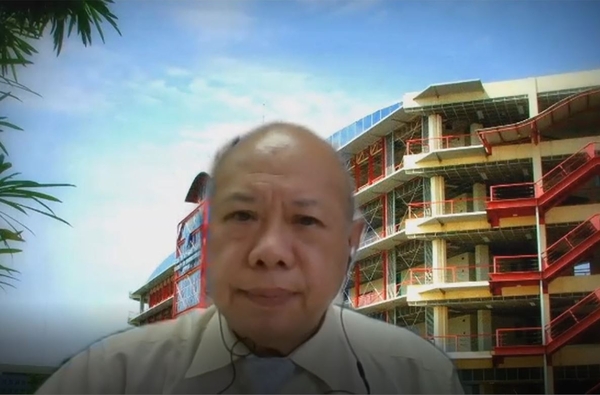
Pic 4:Asst. Prof. Chamras Promptmas introduced NMOSD diagnostics system
Dr. Pornpat Athamanolap proposed a digital microfluidic platform for applications of antimicrobial susceptibility profiling and evaluation of tumor heterogeneity from liquid biopsies. “The digital microfluidic devices allow for decreasing required time and laboratory consumptions, and also lead to the evolution of smart devices being paired to it. “said Dr. Pornpat Athamanolap.
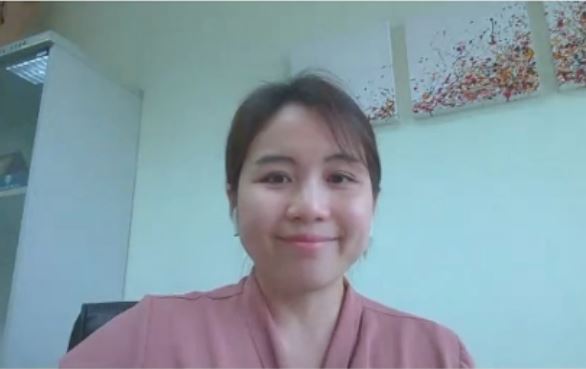
Pic 5:Dr. Pornpat Athamanolap introduced a digital microfluidic platform
Precision medicine has transformed the way of medical care we used to have. Quick genetic and protein analysis make precision medicine possible to deliver more precise and personalized medical care and take prevention action in advance, decreasing adverse drug reactions (ADR) as well as waste of medical resources. On the other hand, the developing precision medicine also required supporting systems such as professionals training, regulation and surrounding medical equipment updates. Taiwan Center for Smart Healthcare Science and Technology in Thailand is dedicated to connecting interdisciplinary professionals and technology innovators from Taiwan and Thailand, hoping to share Taiwan experiences to Southern and Southeast Asian countries and improve mutual understanding, co-creating a future with high quality healthcare and social well-being.

